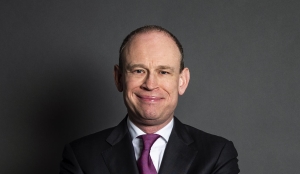Up in smoke - Belgian Competition Authority (BCA) imposes EUR 36 million in fines on four major cigarette manufacturers for engaging in an information sharing cartel
The case dates back to May 2017, when the BCA’s Competition Prosecutor’s Office (Auditorat / Auditoraat) first opened an investigation and carried out dawn raids.
In October 2021, the Competition Prosecutor’s Office prosecuted the companies, which together account for approx. 90% of cigarette sales in Belgium. The Prosecutor’s move was already an exception in Belgian competition law, where settlement decisions have become the norm and prosecution before the BCA’s Competition College (Collège de la concurrence / Mededingingscollege) is relatively rare.
On 13 April 2022, the Competition College imposed fines to the tune of EUR 35.9 million on the four cigarette manufacturers. The College found that the companies had consistently received information on one another’s future prices from their wholesalers. As the manufacturers had failed to object to receiving this information, this constituted an illegal exchange of commercially sensitive information, which allowed them to reduce risks associated with normal competition.
The case raises a number of important issues for companies:
- The fines were imposed for a fairly “old school” type of infringement, namely illegal exchange between competitors of prices. The case demonstrates that inhouse legal and compliance counsels should not lose sight of such more traditional infringements and the importance of a robust and comprehensive compliance training programme.
- In this case, manufacturers were found to have exchanged information not directly, but via their wholesalers (so-called hub-and-spoke exchange). It shows that high-risk situations are not limited to direct contacts with competitors (such as trade association meetings), but that companies should also train their employees on how to deal with information exchanges in the context of contacts with customers and suppliers.
- There seems to be no immunity applicant in this case, who brought the behaviour to the BCA’s attention in return for a zero fine. While it is not publicly known how the BCA was informed about the conduct, the case bears a strong resemblance to the investigation of the Netherlands Authority for Consumers and Markets (ACM), which imposed fines amounting to EUR 82 million on four cigarette manufacturers active in the Netherlands in May 2020. It can therefore not be excluded that the authorities exchanged views in the context of the European Competition Network, the forum for European competition authorities.
Multinational companies should therefore heed attention to spill-over of an investigation or behaviour from one jurisdiction into another, even if the business is managed through different legal entities.
- The entire investigation before the BCA lasted approximately 4 years and 10 months. Such lengthy procedures can represent a significant burden for companies and should not be underestimated.
- Finally, whereas settlement decisions are not open for appeal by the settling parties, the Competition College’s decisions can be challenged before the Markets Court. Companies should not lose sight of this important difference when deciding on whether to settle with the Prosecutor.
For more information, please contact Hein Hobbelen or Baptist Vleeshouwers.




